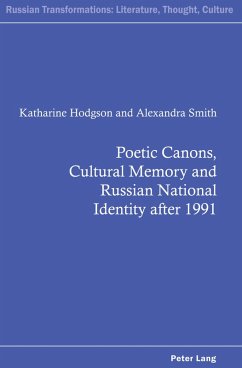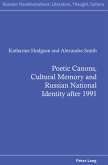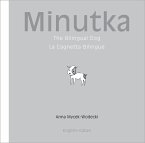The collapse of the Soviet Union forced Russia to engage in a process of nation building. This involved a reassessment of the past, both historical and cultural, and how it should be remembered. The publication of previously barely known underground and émigré literary works presented an opportunity to reappraise «official» Soviet literature and re-evaluate twentieth-century Russian literature as a whole.
This book explores changes to the poetry canon - an instrument for maintaining individual and collective memory - to show how cultural memory has informed the evolution of post-Soviet Russian identity. It examines how concerns over identity are shaping the canon, and in which directions, and analyses the interrelationship between national identity (whether ethnic, imperial, or civic) and attempts to revise the canon. This study situates the discussion of national identity within the cultural field and in the context of canon formation as a complex expression of aesthetic, political, and institutional factors. It encompasses a period of far-reaching upheaval in Russia and reveals the tension between a desire for change and a longing for stability that was expressed by attempts to reshape the literary canon and, by doing so, to create a new twentieth-century past and the foundations of a new identity for the nation.
This book explores changes to the poetry canon - an instrument for maintaining individual and collective memory - to show how cultural memory has informed the evolution of post-Soviet Russian identity. It examines how concerns over identity are shaping the canon, and in which directions, and analyses the interrelationship between national identity (whether ethnic, imperial, or civic) and attempts to revise the canon. This study situates the discussion of national identity within the cultural field and in the context of canon formation as a complex expression of aesthetic, political, and institutional factors. It encompasses a period of far-reaching upheaval in Russia and reveals the tension between a desire for change and a longing for stability that was expressed by attempts to reshape the literary canon and, by doing so, to create a new twentieth-century past and the foundations of a new identity for the nation.
Dieser Download kann aus rechtlichen Gründen nur mit Rechnungsadresse in A, D ausgeliefert werden.









